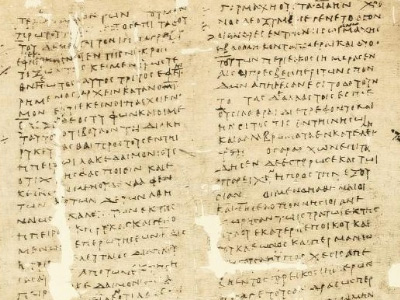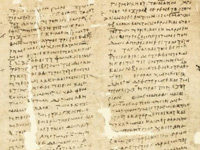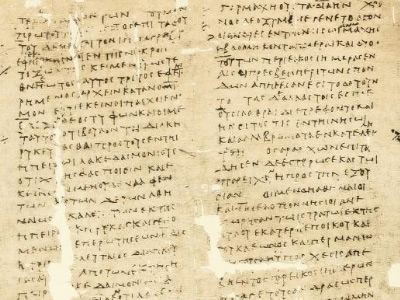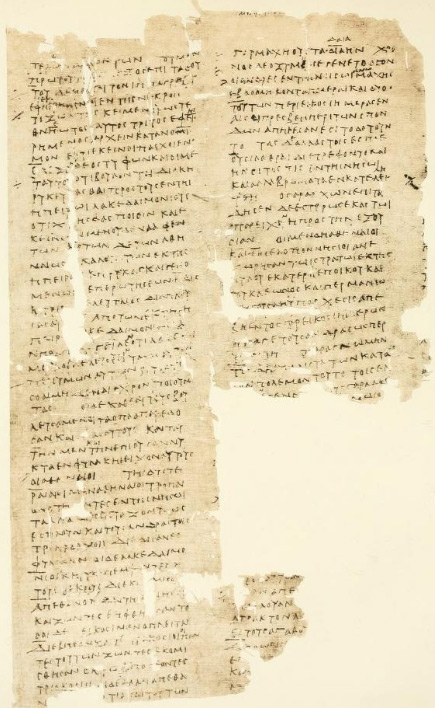Second Peloponnesian War (431-404 BC)

The Second War
The Lacedaemonians were not content with simply sending aid to Sicily; they also resolved to take the war to the Athenians. On the advice of Alcibiades, they fortified Decelea, near Athens, and prevented the Athenians from making use of their land year round. The fortification of Decelea prevented the shipment of supplies overland to Athens, and forced all supplies to be brought in by sea at increased expense. Perhaps worst of all, the nearby silver mines were totally disrupted, with as many as 20,000 Athenian slaves freed by the Spartan hoplites at Decelea. With the treasury and emergency reserve fund of 1,000 talents dwindling away, the Athenians were forced to demand even more tribute from her subject allies, further increasing tensions and the threat of further rebellion within the Empire.
The Corinthians, the Spartans, and others in the Peloponnesian League sent more reinforcements to Syracuse, in the hopes of driving off the Athenians; but instead of withdrawing, the Athenians sent another hundred ships and another 5,000 troops to Sicily. Under Gylippus, the Syracusans and their allies were able to decisively defeat the Athenians on land; and Gylippus encouraged the Syracusans to build a navy, which was able to defeat the Athenian fleet when they attempted to withdraw. The Athenian army, attempting to withdraw overland to other, more friendly Sicilian cities, was divided and defeated; the entire Athenian fleet was destroyed, and virtually the entire Athenian army was sold off into slavery.
Following the defeat of the Athenians in Sicily, it was widely believed that the end of the Athenian Empire was at hand. Her treasury was nearly empty, her docks were depleted, and the flower of her youth was dead or imprisoned in a foreign land. They overestimated the strength of their own empire and the beginning of the end was indeed imminent.
Athens recovers
Following the destruction of the Sicilian Expedition, Lacedaemon encouraged the revolt of Athens's tributary allies, and indeed, much of Ionia rose in revolt against Athens. The Syracusans sent their fleet to the Peloponnesians, and the Persians decided to support the Spartans with money and ships. Revolt and faction threatened in Athens itself.
The Athenians managed to survive for several reasons. First, their foes were lacking in initiative. Corinth and Syracuse were slow to bring their fleets into the Aegean, and Sparta's other allies were also slow to furnish troops or ships. The Ionian states that rebelled expected protection, and many rejoined the Athenian side. The Persians were slow to furnish promised funds and ships, frustrating battle plans.
At the start of the war, the Athenians had prudently put aside some money and 100 ships that were to be used only as a last resort.
These ships were then released, and served as the core of the Athenians' fleet throughout the rest of the war. An oligarchical revolution occurred in Athens, in which a group of 400 seized power. A peace with Sparta might have been possible, but the Athenian fleet, now based on the island of Samos, refused to accept the change. In 411 BC this fleet engaged the Spartans at the Battle of Syme. The fleet appointed Alcibiades their leader, and continued the war in Athens's name. Their opposition led to the reinstitution of a democratic government in Athens within two years.
Alcibiades, while condemned as a traitor, still carried weight in Athens. He prevented the Athenian fleet from attacking Athens; instead, he helped restore democracy by more subtle pressure. He also persuaded the Athenian fleet to attack the Spartans at the battle of Cyzicus in 410. In the battle, the Athenians obliterated the Spartan fleet, and succeeded in re-establishing the financial basis of the Athenian Empire.
Between 410 and 406, Athens won a continuous string of victories, and eventually recovered large portions of its empire. All of this was due, in no small part, to Alcibiades.
HISTORY

RESOURCES
This article uses material from the Wikipedia article "Second Peloponnesian War (431-404 BC)", which is released under the Creative Commons Attribution-Share-Alike License 3.0.
© Stories Preschool. All Rights Reserved.










